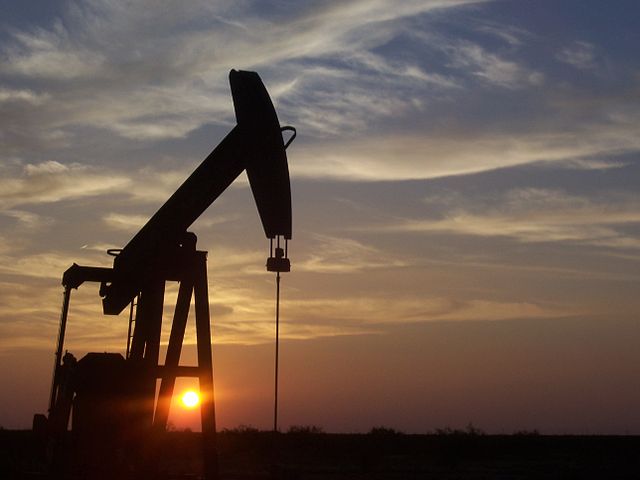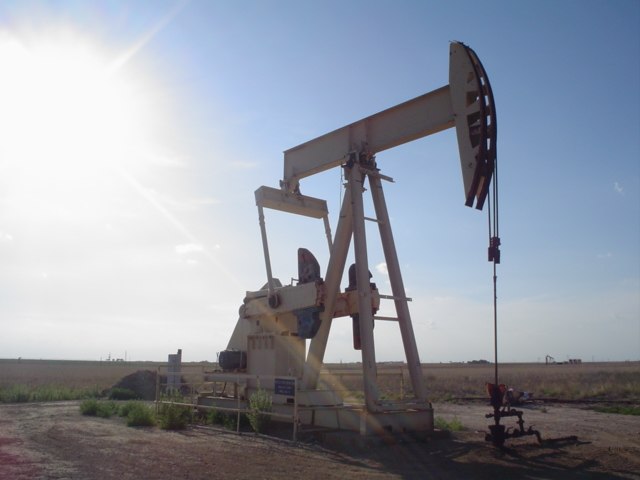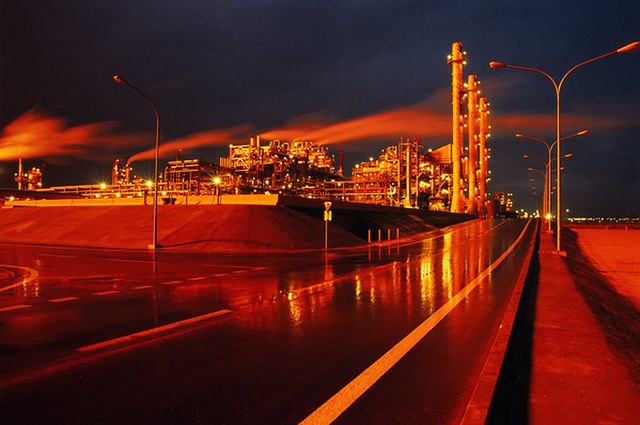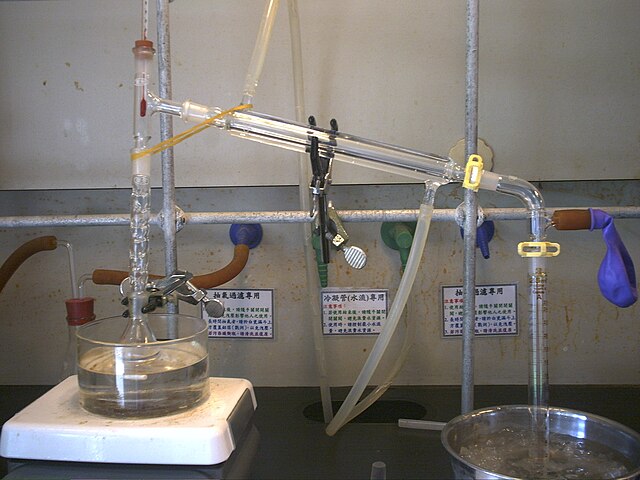An oil well is a drillhole boring in Earth that is designed to bring petroleum oil hydrocarbons to the surface. Usually some natural gas is released as associated petroleum gas along with the oil. A well that is designed to produce only gas may be termed a gas well. Wells are created by drilling down into an oil or gas reserve and if necessary equipped with extraction devices such as pumpjacks. Creating the wells can be an expensive process, costing at least hundreds of thousands of dollars, and costing much more when in difficult-to-access locations, e.g., offshore. The process of modern drilling for wells first started in the 19th century but was made more efficient with advances to oil drilling rigs and technology during the 20th century.
The pumpjack, such as this one located south of Midland, is a common sight in West Texas
Early oil field exploitation in Pennsylvania, around 1862
Galician oil wells
1904 oil well fire at Bibi-Heybat
Petroleum or crude oil, also referred to as simply oil, is a naturally occurring yellowish-black liquid mixture of mainly hydrocarbons, and is found in geological formations. The name petroleum covers both naturally occurring unprocessed crude oil and petroleum products that consist of refined crude oil.
A sample of petroleum
Pumpjack pumping an oil well near Lubbock, Texas, U.S.
An oil refinery in Ahmadi Governorate in Kuwait
A fractional distillation apparatus








